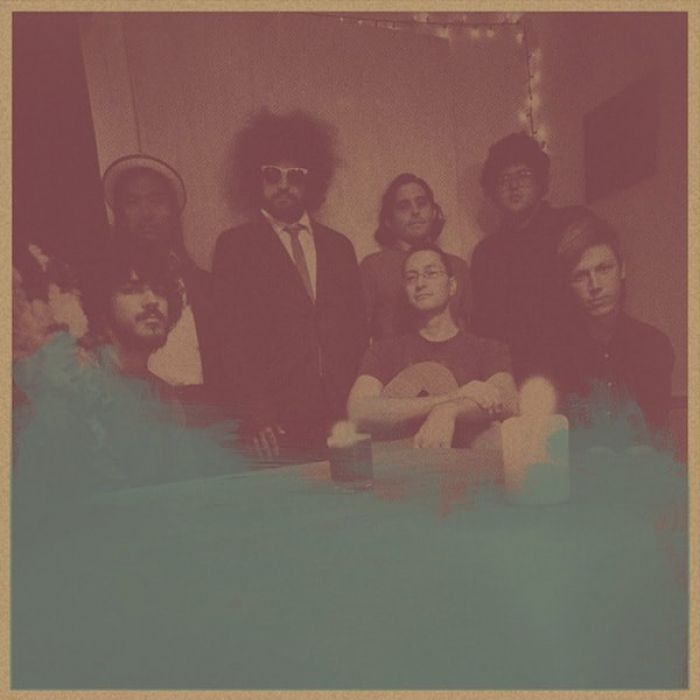Psychic Temple by Chris Schlarb (Review)

Chris Schlarb — whom you might recognize from his work with I Heart Lung and the Sounds Are Active label — spent over 1,000 hours and 19 months working on the four tracks that make up his Psychic Temple release. That becomes quickly apparent in the opening minutes of “I Can Live Forever If I Slowly Die,” which opens the album with an expansive and atmospheric palette of ghostly voices, scattered drumming, meandering brass, and sterling guitar.
Although at first blush it might seem completely random and directionless — a most sedate form of chaos, if you will — Schlarb and his 29(!) collaborators, which include Mike Watt (Minutemen), Mick Rossi (Philip Glass Ensemble), DM Stith, and Dave Easley (Brian Blade Fellowship), have created a meticulously crafted album that straddles the lines between jazz, folk, and psychedelia.
At times, Psychic Temple plays like Supersilent at their most bucolic jamming with Do Make Say Think at their most relaxed, or RF sans the glurp, i.e., the kind of album that one is content to let drift by whilst soaking in the nicely layered sonics. This is especially true on tracks like “Dream State > Police State” and “White Dove in the Psychic Temple.” They contain moments absolutely perfect for watching the sun set over autumn-tinted pastures from your back porch, or for long twilight drives on country highways (or whatever similar activity is suitable for your particular environment).
But therein lies my one criticism of the album: as lovely as it can be, it can also feel a bit stifled at times — I have found myself frustrated at times amidst the album’s obvious finery. For all of its open-endedness, Psychic Temple is markedly restrained, so much so that I’ve often wished for one small moment of release: a moment when the slowly burning and building layers of sounds experience a catharsis, when Schlarb et al. cut loose if only for a minute. There are moments when the album heads in that direction — e.g., “White Dove in the Psychic Temple“ ‘s final moments, when the drums pick up a little momentum, the guitars grow a bit more insistent, and those disembodied voices seem a bit more unsettled than usual — but Schlarb et al. almost invariably pull back and opt for more restraint.
My criticism notwithstanding, Psychic Temple is a lovely album, with my favorite moment occurring about half-way through “Daughters of Ursa Minor” (which, at five minutes, is the album’s shortest track). Here, both male and female vocals ghost in amidst forlorn pedal steel tones, double bass, and more scattered drumming, and it all comes together for a moment of peace and tranquility that stands out on an album characterized by such.